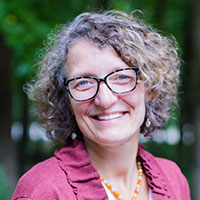Based on ongoing evaluations of dual credit programs in Indiana and North Carolina, the session will provide an overview of the variation in dual enrollment implementation practices and factors affecting students’ access to and success in college-level courses in these two states. The results are based on administrative participation and performance data in North Carolina and data collected through surveys and interviews in both states. One state predominantly uses high school teachers as dual credit instructors and another one primarily uses college instructors. As a result, there are challenges that are unique to each state for high school and college partners providing access to and promoting success in dual enrollment classes. There are also implementation challenges that are common across the states. In addition, a variety of other factors can impact implementation, which include staff’s attitudes, the quality of the high school-higher ed partnership, student recruitment and awareness, personnel, financial factors, and district and college policies. The presentation will address the ways in which factors that affect student success in dual enrollment also affect student access to dual enrollment courses and will propose strategies to increase both access and success to help students historically underrepresented in college take and succeed in dual enrollment courses.
At the end of the session, participants will learn about:
- Dual enrollment programs in Indiana and North Carolina; and
- The factors that affect student participation and success in dual enrollment programs in two states with different models of providing dual credit opportunities.
This webinar will be one hour with time allotted for questions. Resources, as they are available, will be posted to our Past Events page of the MHEC website: https://www.mhec.org/convening/past-events.
Presenters
 Nina Arshavsky
Nina Arshavsky
Nina Arshavsky is a Senior Research Specialist at the Early College Research Center/SERVE Center at UNC-Greensboro. Dr. Arshavsky’s research and evaluation projects focus on STEM, dual credit, and early college model, which she has been studying for over 16 years. Dr. Arshavsky is a co-author of the book, published in 2022 by Harvard Education Press, that describes research and evaluation on early colleges: Early Colleges as a Model for Schooling: Creating New Pathways for Access to Higher Education. Currently, Dr. Arshavsky is involved in evaluation of two Early College expansion projects in Indiana and an evaluation of a state-wide dual enrollment program in North Carolina.
Julie Edmunds Dr. Julie Edmunds is Director of the Early College Research Center at the University of North Carolina at Greensboro where she leads a team of researchers looking at early college, dual enrollment, career pathways, and postsecondary access and success. She has been studying early college and dual enrollment for 20 years and has authored or co-authored over 30 articles and a book, Early Colleges as a Model for Schooling: Creating New Pathways for Access to Higher Education. Dr. Edmunds has also been a program analyst for the U.S. Department of Education, an elementary school teacher, and a Peace Corps Volunteer in the Democratic Republic of the Congo.
Dr. Julie Edmunds is Director of the Early College Research Center at the University of North Carolina at Greensboro where she leads a team of researchers looking at early college, dual enrollment, career pathways, and postsecondary access and success. She has been studying early college and dual enrollment for 20 years and has authored or co-authored over 30 articles and a book, Early Colleges as a Model for Schooling: Creating New Pathways for Access to Higher Education. Dr. Edmunds has also been a program analyst for the U.S. Department of Education, an elementary school teacher, and a Peace Corps Volunteer in the Democratic Republic of the Congo.